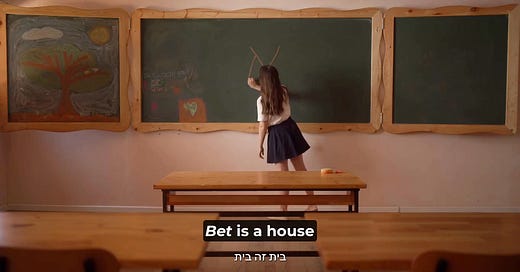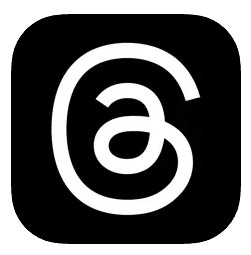Israeli children, from kindergarten to high school, went back to school last week, on September 1st. Despite threats of a teachers’ union strike (a common threat, often carried out), and a shortage of thousands of teachers, schools opened precisely as scheduled.
Behind the scenes, tensions over Israeli democracy, judicial reform and that whole set of issues colored even the return to school. Could teachers discuss the issues that have unfolded in recent months in their classrooms? Could they be genuine educators if they didn’t?
As the Haaretz screenshot below indicates, even the Minister of Education entered the fray.
But what counts as a personal opinion? How can one really teach this material without some expression of worry, concern, hope, pride, shame—regardless of where one stands? Teachers are nervous that they will be held accountable for bringing in personal views, no matter what they may be, even if they do not intend to.
In fact, we had hoped to interview for our podcast a teacher who wanted to share how jittery Israeli teachers are this year. But she was nervous about even coming on the podcast. We of course assured her we would not use her name. She was still concerned. We told her that our audio software could entirely mask her voice. But in the end, she wouldn’t do it. Who knows how someone might figure out who she is? And what could happen to her?
We didn’t get that interview.
Ever since we launched Israel from the Inside, we’ve sought to show how central are music and songs to Israeli life—to Israeli culture, Israeli memory, and even Israeli politics. We saw that very clearly with the various versions of The Children of the Winter of ‘73, both the original version as well as the emendations, including a Jewish-Arab duet, that followed.
Something similar has transpired again this week. It was a play on a famous Naomi Shemer (1930-2004) song, called the Aleph Bet song, with hints of another song, as we will see in moment.
Below are the lyrics of the Naomi Shemer song, taken from here (where you can view them in larger format, as well); the melody you can hear in the YouTube video just below.
Lyrics and translation:
Here’s the melody (you can follow the Hebrew with the text above):
To get the full impact of the new version above, one also needs to know a bit about another song, which every Israeli knows. It’s commonly called Ha-Tishma Koli, or “Will you hear my voice?” It’s an Israeli classic, the lyrics written by Rachel Bluwstein, commonly called “Rachel the Poetess” (1890-1931), whose tragic story we will cover in a future column.
This website has ten different performances, as well as the lyrics in Hebrew, transliteration and translation in English.
Take a minute to listen, so you get the full sense of the revised song.
Now that you know those two melodies and their original words, you can appreciate how the Naomi Shemer song and Ha-Tishma Koli were used together in a new version just released, which appears at the very top of this posting. The creators took two songs everyone in Israel knows, and used them to remind teachers, parents and everyone else of an equally important, and different, set of concepts.
We’ve added English subtitles to the video at the top so you can follow the new words.
Don’t feel self-conscious if you find yourself humming along. Everyone else here is, too.
With the High Holidays just weeks away, we wanted to share the schedule for Israel from the Inside during that period.
During the week of Rosh Hashanah and the Fast of Gedaliah (on Monday, there will be no written column on Monday, September 18th, but we will post our regular Wednesday podcast on September 20.
During the week of Yom Kippur, there will be no written column on Monday, September 25th (which is the day of Yom Kippur), but we will post our regular Wednesday podcast on September 27.
During the week of the holiday of Sukkot (Monday, October 2 and Wednesday, October 4), we are planning not to post.
The regular schedule of written columns on Mondays and podcasts on Wednesdays will resume the following week.
To all who are observing and celebrating, our wishes for a meaningful and joyous High Holiday season.
Impossible Takes Longer is now available on Amazon and Barnes & Noble and at other booksellers.
Our Twitter feed is here; feel free to join there, too.
Our Threads feed is danielgordis. We’ll start to use it more shortly.























Love the beautiful articulation of secular humanist Jewish values in this video. Thanks for adding the subtitles.
The song is neither "simple" nor "sweet", nor is it intended for children, rather it is a very thinly disguised polemic intended to strengthen those forces who in the name of "democracy" and all the other high-sounding values espoused by the "progressive" left, cannot in reality, fathom or accept the views of those who are not like them. Something we might expect from a "Ministry of Truth" or the former "cultural" editors of "Pravda"'!
תודה רבה שתרגמת את זה
Israel is, surely, the ultimate 'nation-state'; with its own ethnic religion, which was devolved to the world through its off-shoot, Christianity. So there should be no surprise that there are forces seeking to take apart Israel; just as they are in other 'nation-states' throughout Europe. Is there any awareness that you may be undergoing the same Globalist-Communist revolution as everywhere else in the West?